Project Title:
Development of real-time cooperative VR multi-CAVE systems for collaborative and team learning
研究項目: 開發及推行用於協作和團隊學習的實時協作複合性虛擬實境系統
Project Team:
Dr WONG Yin Cheung, Eugene (PI), Prof LO Wai Lun (Co-PI), Mr WONG Kwan Hoi, Dennis (Co-PI), Dr LAU Ying Kei, Henry (Co-PI), Dr MO Yiu Wing, Daniel (Co-I), Prof SIU Yuk Tai, Trevor (Co-I), Prof James CHANG (Co-I), Prof CHIU Ying Chun, Ronald (Co-I), Dr Clio WU (Co-I), Prof Desmond HUI (Co-I), Dr Patrick MOK (Co-I), Dr KONG Kaylee (Co-I), Mr KAY Chung Hok, Ken (Co-I), Mr LEUNG Kong Yue (Co-I), Dr Jeanne LAM (Co-I), Dr CHAN Leith (Co-I), Mr Vincent LAM (Co-I)
Funding Scheme:
Education Bureau – Quality Enhancement Support Scheme
Support Scheme (QESS) Project Period:
From December 2020 – November 2023
Reference No.:
T02/QESS/2020
Grant Approved:
HKD 8,770,761
Abstract
Upon the successful development and implementation of Virtual Reality (VR) Cave Automated Virtual Environment (CAVE) systems in the Hang Seng University of Hong Kong (HSUHK), Hong Kong Chu Hai College (HKCHC) and HKU School of Professional and Continuing Education (HKU Space), over thousands of students and guests have experienced the CAVE systems. Various academic modules have adopted VR in assisting teaching and learning in a more immersive, interactive and effective way when covering complex contents or encountering difficulties in on-site field learning. With these systems, the institutions have sustained and achieved excellence in teaching and learning.
However, more sophisticated training contexts that require collaborative and team learning, for example, air cargo building and screening, warehouse automated storage and retrieval systems, news reporting in a disaster environment, quay crane operations in container terminals, and cultural heritage evaluation and design, require the need of real-time synchronized cooperative and distributive multiple CAVE systems in achieving these objectives. Currently, multi-CAVEs interaction and communication are not possible, and multi-Head-mounted devices (HMDs) are also not available, hindering the pedagogical learning development of students in universities and industries. This project will develop and enhance the current VR CAVE systems by solving this problem and enhancing the current teaching and learning environment with the new advanced multi-CAVEs collaborative learning and practicing through interacting in multiple environments. VR scenes on warehouse operations, e.g. automated warehouse systems, journal earthquake news reporting and engineering and architecture design, which requires cooperative and collaborative learning will be developed. The popularisation of VR training depends on various factors, including the availability of teaching content and user acceptance and attitude to technology-support learning platform. The valuable content developed in the HSUHK, HKU Space and CHCHE have been increasing.
A knowledge-based sharing and learning VR platform aims to share the developed VR content will be developed in facilitating instructors to drag and drop content in CAVE and HMD for efficient teaching and learning. Designated CAVE systems and HMD devices can retrieve the content through the platform. In evaluating the user acceptance, attitude and learning effectiveness to the advanced VR CAVE technology, a comprehensive study with survey and analysis will be conducted to facilitate further enhancement of the teaching and learning platform. The first-ever multi-CAVE systems in facilitating learning in supply chain, journalism and transportation will be the best practice in achieving teaching excellence and learning experience in the universities as well as the industry.
Project Themes
Logistics
The logistics VR content seeks to create immersive VR content designed specifically for students studying the discipline of logistics. The purpose is to provide them with an opportunity to encounter and navigate through typical incidents that occur within a warehouse setting, all within a controlled and secure environment. The content aims to effectively illustrate the operational procedures involved in the daily functioning of an outbound shipping warehouse. By employing VR technology, it aims to offer students a rich and engaging experience that encompasses both visual appeal and interactive elements, thereby enhancing the overall teaching and learning of logistics practices.
Heritage – Haw Par Mansion
The objective of this project is to develop a Heritage Virtual Reality (VR) platform with the aim of augmenting public awareness and enhancing the effectiveness of education in relation to cultural heritage changes. The platform will serve as a medium to enhance and preserve historical and cultural values by providing immersive experiences at heritage sites. Furthermore, the project endeavours to improve the user experience, enhance visual attractiveness, and foster aesthetic appreciation in heritage teaching and learning through the utilization of the VR platform. By accomplishing these objectives, this project seeks to contribute to the advancement of public engagement and education in the realm of cultural heritage studies.
Journalism – Earthquake News Reporting
The journalism VR content enables users to assume different roles within the news reporting industry and collaborate in the execution of a news report within the context of an earthquake scenario. These roles encompass news anchors, cameramen, and news reporters, with each role being assigned distinct tasks. The content aims to provide users with an opportunity to gain firsthand experience of the difficulties encountered during and after natural disasters in the realm of reporting. Additionally, it seeks to foster the development of skills in prioritizing and effectively communicating crucial information in the context of disaster reporting. Furthermore, the content endeavours to enhance users’ oral communication abilities by simulating news reporting and conducting interviews in the aftermath of a natural disaster.
Events
Culture and Technology Talk – Reconstructing Lost Heritage of Tiger Balm Garden
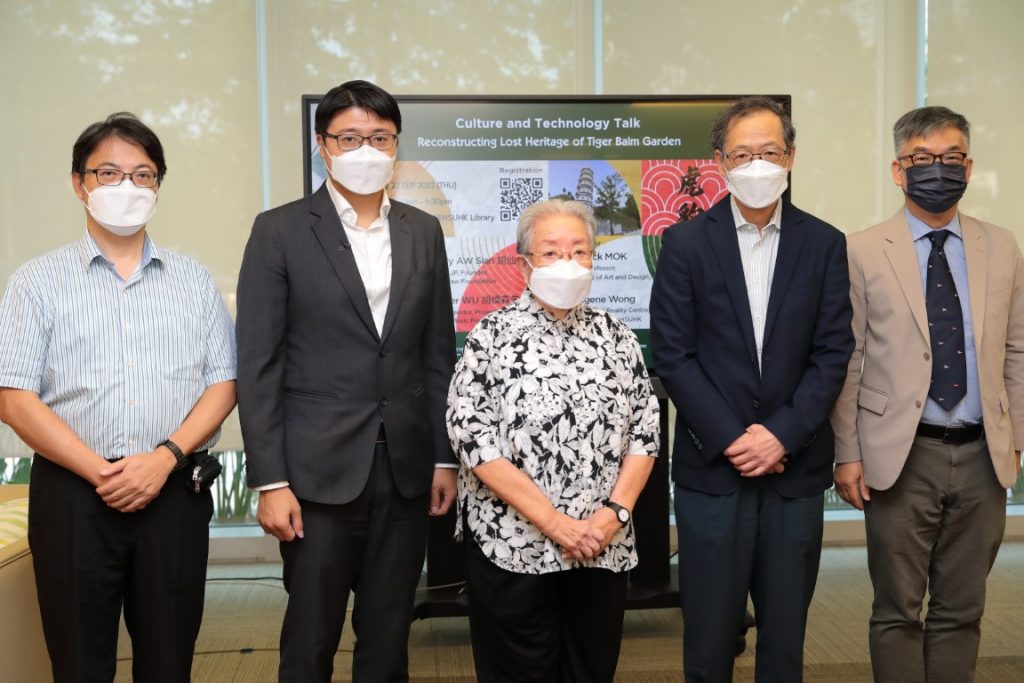
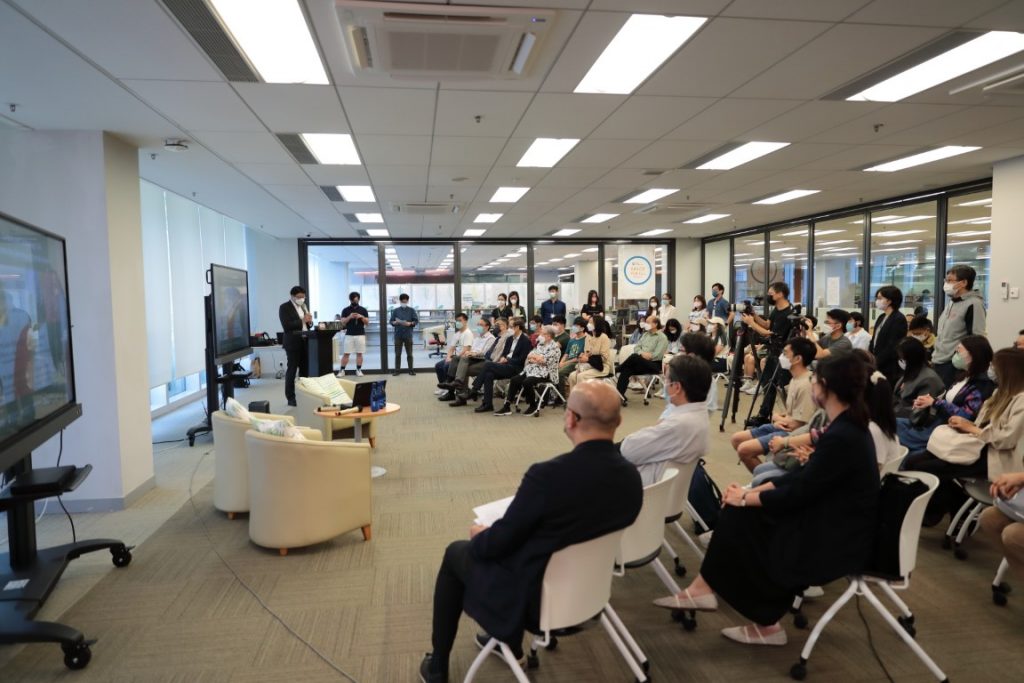
The talk is held on 22 September 2022 in the Stella Fung Siu Wan Space for All. The talk featured sharing sessions from Ms Sally Aw Sian from the Aw Boon Haw Foundation. Ms Aw also had a hands-on experience with the Tiger Balm Garden theme VR. After an introduction to the project’s background and objectives, Ms Aw, Prof Y. V. Hui, Dr Patrick Mok, and Dr Eugene Wong discussed the history and culture of Tiger Balm Garden. They also showcased how Virtual Reality technologies can help reconstruct the lost heritage.
Decisions Analysis Outstanding Award 2023
The award ceremony was held on 8 July 2023 at the Fung Yiu King Hall. DHL Express Hong Kong received the Best Practice in the Large Enterprise award group of the Decisions Analysis Outstanding Award. They use the VR content in this QESS project as an operation training tool for staff training. It provides a safe virtual environment for practising job routines without disturbing daily operations.
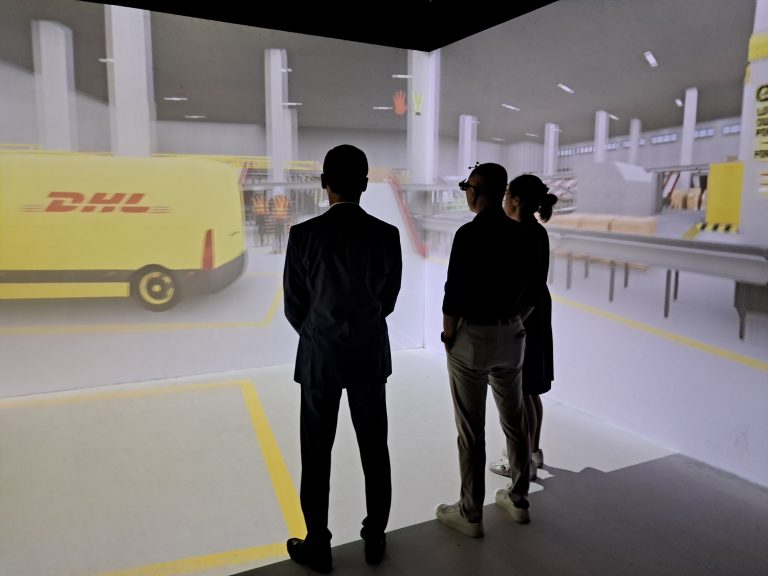
Launch Ceremony of Cross-Institutional Metaverse Platform for Collaborative Learning
on Logistics, Heritage and Journalism
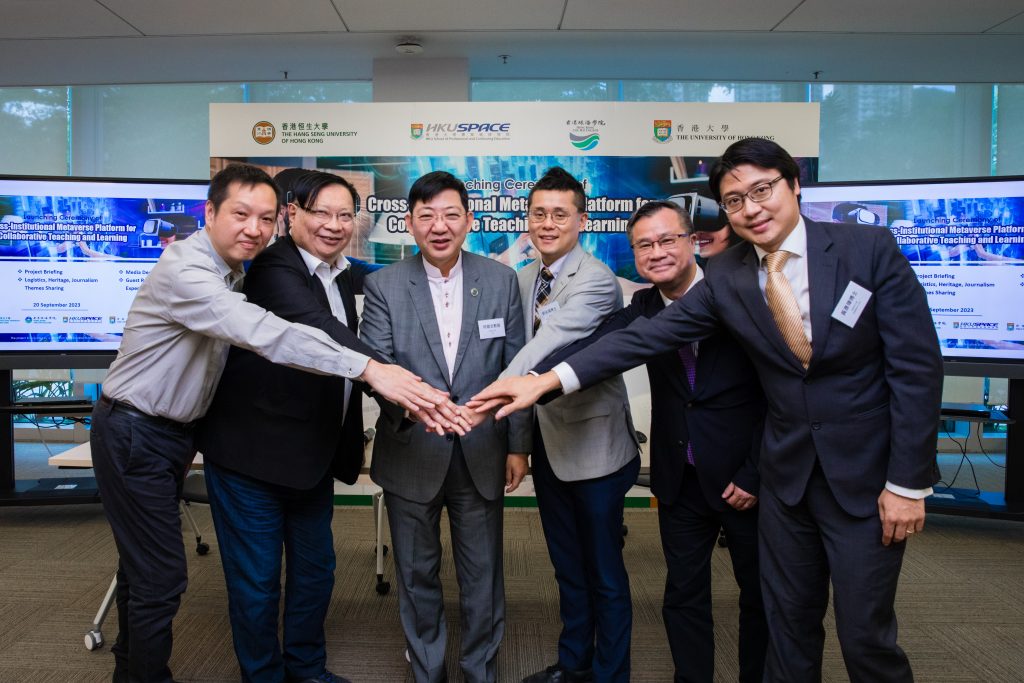
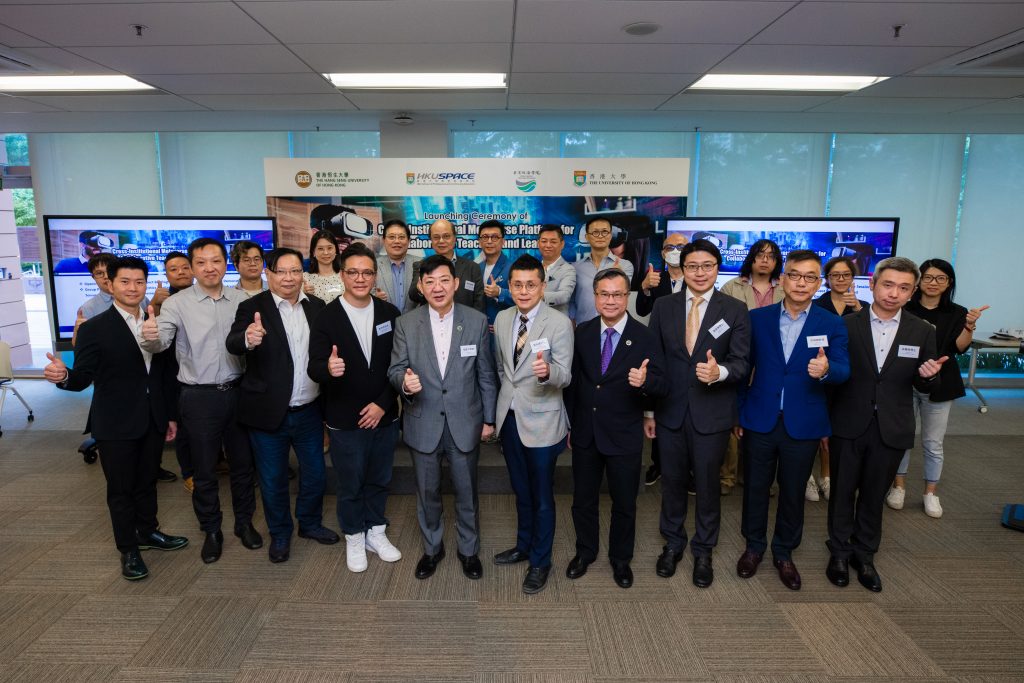
The launch ceremony is held on 20 September 2023 in the Stella Fung Siu Wan Space for All (Space4All). During the event, nine representatives from three disciplines introduced how this project could improve teaching and learning in work-based training programmes, universities, and lifelong learning programmes. After the ceremony, a media showcase was organised in the Virtual Reality Centre. HSUHK student Ms Helen Ip (BBA in Supply Chain Management, Year 4) also shared her learning experience with the platform.

